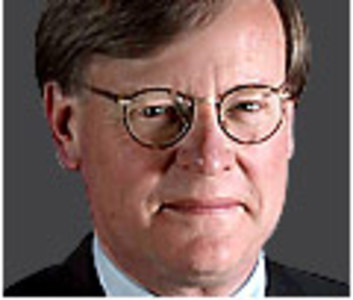Mario Dumont and his Action Démocratique du Québec have won the Quebec election campaign. They might not win power in Monday's vote, but they have clearly impressed a lot of Quebeckers.
André Boisclair's Parti Québécois and Jean Charest's Liberals have gone nowhere, except perhaps backward. Meanwhile, the ADQ and its telegenic, populist leader have gone up, way up.
Mr. Dumont voted for Stephen Harper's Conservatives in the last federal election. Many of Mr. Dumont's policies are somewhat conservative - the kind Mr. Harper used to believe in, such as cutting the size of government and allowing some private health-care delivery. In the swath of ridings around Quebec City, where the Conservatives did well, the ADQ is about to sweep the table, according to a poll published this week in Le Soleil.
For his part, Mr. Harper has been quite solicitous of the ADQ. In an interview at the one-year mark of his government, Mr. Harper was quick to correct a questioner who asked about his support for Mr. Charest. We have to be careful here, Mr. Harper said, because there are two federalist parties in Quebec.
So what about Mr. Harper's "federalist" friend Mario Dumont? Judge for yourself just how federalist he is. Remember, Mr. Dumont might hold the balance of power after Monday's vote.
The ADQ platform demands "autonomie" for Quebec. The word is politically slippery, just like Mr. Dumont. A leading French dictionary gives three definitions: autonomy, independence, self-government.
The word, therefore, encapsulates the deliberate ambiguity of Mr. Dumont - and of so many Quebeckers whose attachment to Canada is dwindling and highly conditional. Secessionists can read independence into the demand for autonomy; federalists can read a continuing link to Canada.
Mr. Dumont supported the "Yes" side in the last referendum, appearing with PQ titans Jacques Parizeau and Lucien Bouchard. Now, he says he doesn't want a referendum and favours Quebec remaining in Canada, sort of.
The ADQ platform describes other Canadians not as "fellow citizens," but as "privileged partners." That's the way Quebec and France describe their relationship: "relations privilégiées." The phrase, therefore, connotes relations between people in different states with certain things in common.
The platform continues: "Quebec's development as a distinct nation naturally happens by an enlargement of our autonomie." Relations with Ottawa would be "equal to equal." Constitutional negotiations would have to restart with Ottawa and the other provinces, although the ADQ does not specify a list of demands. The ADQ further proposes that Quebec create its own constitution "to affirm our identity and values." Quebec would therein be described as the "autonomous state of Quebec."
Presumably, Quebec would continue to receive equalization payments and other federal transfers, and Quebeckers would remain in Parliament and the cabinet helping to run whole country, while more money and authority were transferred to this "autonomous state of Quebec."
This "cake and eat it, too" vision appeals to Quebeckers: They can remain in Canada, extracting such benefits as they can from it, while participating in it less and less.
This Quebec campaign, leaving aside the usual issues of health and education, has been predictably all about getting more for Quebec. The PQ wants independence, the ADQ an extremely loose (and therefore unstable) federation and the Charest Liberals more money.
"Defending Quebec's interests," in Mr. Charest's words, has been all about Quebec's representation in international institutions, creation of the Council of the Federation, and extracting billions of extra dollars from Ottawa.
These dollars were supposed to rectify the "fiscal imbalance," whose proponents painted Quebec as struggling to maintain public services such as health care. No sooner did the budget signal lots more equalization money for Quebec than Mr. Charest brazenly promised, in desperation, to spend the money on lower taxes.
Mr. Charest has further demands, lest anyone think his list is finite, including limiting the federal spending power and further representation by Quebec in international forums.
If Mr. Dumont holds the balance of power for either a PQ or Liberal government, the pressures on Mr. Harper's "open" (or "open chequebook") federalism will intensify to give more and more and more.

























Laissez un commentaire Votre adresse courriel ne sera pas publiée.
Veuillez vous connecter afin de laisser un commentaire.
Aucun commentaire trouvé